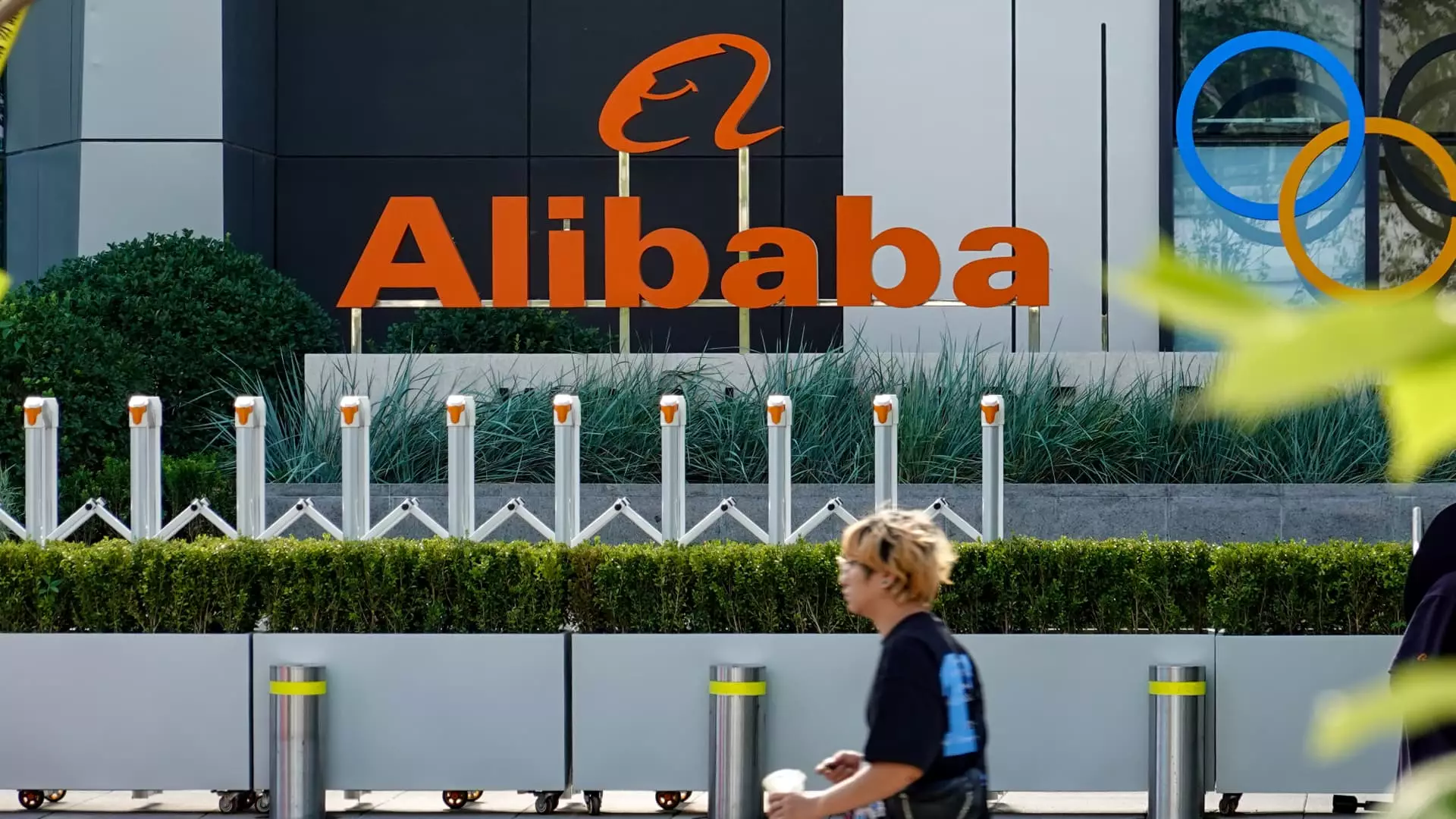Navigating the tumultuous waters of today’s economic landscape can seem like a daunting task, especially when tariffs loom like storm clouds on the horizon. Investors are perpetually looking for ways to shield themselves from the unpredictable vagaries of trade. Quint Tatro of Joule Financial argues that in this chaotic scenario, Alibaba presents an unparalleled opportunity, not just for profit but as a concrete hedge against declining market conditions. The Chinese e-commerce titan, which has seen an astounding 56% increase in share value this year, is a prime choice for investors looking to stabilize their portfolios while maintaining growth potential.
A Unique Revenue Model That Shields Against Tariff Risks
What makes Alibaba stand out in a market riddled with fears of trade wars? Tatro highlights the compelling fact that a staggering 80% to 90% of Alibaba’s revenue is generated from within China itself. This is a significant statistic; the company is largely insulated from American tariffs, as less than 5% of its revenue is derived from the United States. In a landscape where American companies scurry to adapt to ever-changing tariff rules, investing in a firm that operates primarily on a domestic basis can provide a sanctuary against financial storms. Tatro’s insight emphasizes the growing sentiment that, perhaps, investing abroad could be the remedy for mitigating domestic marketpressures.
This isn’t merely a numbers game; it’s an attitude shift towards globalization. Many might argue that such focus on domestic revenue presents its own risks; however, when you consider the ongoing volatility in U.S.-China relations, Alibaba’s positioning becomes even more critical. It underscores a strategy that prioritizes stability while promoting capital growth.
Impressive Fundamentals Point to Long-Term Viability
A further pillar of Tatro’s endorsement is Alibaba’s impressive cash reserves, currently holding around $67 billion. This financial cushion not only showcases the company’s resilience but also enables substantial investments in futuristic technologies. Tatro pointed out its commitment to pouring over $50 billion into artificial intelligence over the next three years. In a world rapidly shifting towards technological reliance, such a forward-thinking approach signals to investors that Alibaba is gearing itself for long-term sustainability and growth.
While others remain entangled in the turmoil of tariff statements and compliance costs, Alibaba is busy innovating and expanding its technological capabilities. Coupled with a strong revenue framework, investors can be optimistic that Alibaba is not merely riding out a wave, but rather leading it.
The Broader Investment Landscape: Examining Other Options
In addition to Alibaba, Tatro also identifies Exxon Mobil and Snowflake as potential market movers. Exxon, despite only a 10% surge this year, represents a fundamental powerhouse with robust growth estimates of 18% for the upcoming year. With a manageable debt load and a tempting dividend yield of 3.4%, it’s easy to see why prudent investors might favor its stocks as supplementary hedges, despite the company’s struggles within the volatile energy sector.
Snowflake, synonymous with cloud data storage, presents a different opportunity altogether. While it has seen a slight decline of about 3% this year, Tatro asserts that the company stands uniquely apart from tariff risks. The underline here is clear: technology companies often operate beyond the reach of traditional market barriers. Even if they encounter challenges related to rising customer costs linked to tariffs, their core business model remains resilient and future-forward.
The Importance of Adaptivity in Investment
In an era defined by rapid technological advancements and unpredictable geopolitical climates, adaptability has become the linchpin of solid investing. The investment strategies heralded by Tatro endorse the idea that leveraging global markets and innovative business models can buffer against domestic uncertainties. With strong examples like Alibaba creating a blueprint for success while navigating tariff territories, it seems prudent for investors to recalibrate their focus as they seek growth amidst chaos.
As the dialogue around tariffs and trade continues to evolve, recognizing which companies have the robust infrastructure to thrive in adversity can create a pathway not just to safeguard investments but to realize substantial growth. Tatro’s assertions should serve as a rallying point for many who remain hesitant about tethering their portfolios to fluctuating markets. Ultimately, one must ask: in this overwhelmingly nuanced financial landscape, is it time to adopt a global perspective?


Leave a Reply